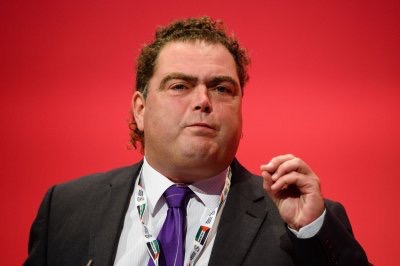
Last week the Treasury announced a freeze on fuel duty, which says all you need to know about the Tories’ inability to face up to the challenge of building the integrated transport system Britain desperately needs. They are giving a tax break worth, they claim, £160 a year to private car users, yet they fail to display a scintilla of even handed fairness to our public transport users.
Under the Tories, rail fares have risen three times faster than wages and Britain’s bus coverage has fallen to a 28-year low. Someone under 30, hit by high rents, tuition fee repayments and low wages, is now less likely to be a driver or a car owner than 20 years ago. Public transport is not a lifestyle choice – it is an economic necessity. Yet as Labour’s transport spokesperson Andy McDonald tweeted last week, the government refuses to be as generous to our public transport users as it is to drivers.
The case for reforming our UK public transport system is now urgent. The dogma of the 1980s and 1990s that made deregulation and privatisation the norm has been an abysmal failure. Tinkering around the edges will no longer do. A radical fresh start, putting passenger needs at the heart of our transport planning, is now needed.
Sadly, the market fundamentalism of the Tories knows no bounds. Look no further than their wish to ban the emergence of new municipally-owned bus companies. Of course, the shareholders of the multinational companies or the foreign states now running vast swathes of our bus and train industry are laughing all the way to the bank at our expense.
The noisy “taking back control” soundbites from transport secretary Chris Grayling during the EU referendum were always completely hollow rhetoric – just look at his handling of our railways. On Grayling’s watch, the French, Dutch and German states have continued to run many of our train companies. And last year, whilst sounding off about leaving Europe, he handed control of the contract to run the lucrative south east company, C2C, to the Italian state rail company.
Grayling is now hypocritically presiding over contracts that reach well beyond March 29, 2019 – even though he and his boss say we will have left the EU by then. But let’s not blame Brussels: the railways chaos was unleashed in Westminster by the Tories. And it remains there. Make no mistake, in or out of the EU, the failed Frankenstein rail privatisation experiment won’t be put to be bed until Jeremy Corbyn resides in number 10.
Let’s not forget, as an act of rail sabotage, the Tories re-privatised East Coast Trains just before the 2015 general election, to block an incoming Ed Miliband government expanding public ownership of rail. Flogging it to Stagecoach and Virgin without (we now know) proper due diligence was a vandal’s act.
But their own bad rail karma is now returning to damage the Tories. Grayling’s bailout of Virgin East Coast – the third failure by privateers on this route – has damaged the privatisation project. In over a decade, the London to Aberdeen and Inverness line’s only period of stability was provided by good old, publicly-owned East Coast Trains. It was founded by Labour’s Andrew Adonis, who turned the route from a mess into one that returned £1bn to treasury coffers.
Opinion polls show 84 per cent of us think Grayling’s initial decision to allow Stagecoach and Virgin to walk away from their contract without paying £2bn in premiums was a bad idea. Labour’s blue print for success on the East Coast is now so hard to ignore that Grayling’s Department for Chaos has been tasked with thinking the unthinkable – how to make transport work for passengers rather then profit-mongers. Faced with that equation, they too are now making serious preparations for bringing East Coast back into public ownership. Jeremy Corbyn’s public ownership pledge looks set to be vindicated by the most unlikely of sources: Christopher Grayling.
Our railways, like our tube, trams and buses are vital to our economic and social wellbeing and must therefore be managed in the public interest. Public transport should not be run for profit. The clue is in the title: public transport. And our local, regional and national public authorities are best suited to run our busses, trains and trams under democratic ownership and control.
We are battling almost four decades of market dogma and failure in the delivery of our public transport. 76 per cent of people now think public ownership is a good idea for our railways, so we must continue to be bold. To create an integrated public transport service, we need to do more than just take back real control of our railways.
Tough regulation of bus services, although a vast improvement, will not fully cut the mustard. Far better would be to enable councils across the country to run their own municipal bus services. In London, the franchising of bus routes must end and the mayor must bring these services back in-house. Powers must be given to Holyrood and Cardiff to allow them to run their own transport systems in public ownership too. To meet the challenges of climate change, we need a sustained programme of investment in public transport. This needs to be done directly from the public purse – no more public-private initiative/partnership scams.
Only a Labour government led by Jeremy Corbyn will put public interest back into the heart of public transport. In designing public transport for the future, we must finally consign almost 40 years of failed market fundamentalism to the dustbin of history.
Manuel Cortes is general secretary of the TSSA.




More from LabourList
SPONSORED: ‘Industrial hemp and the challenge of turning Labour’s priorities into practice’
‘A day is a long time in politics, so we need ‘action this day’’
Strong support for child social media ban among Labour members, poll reveals